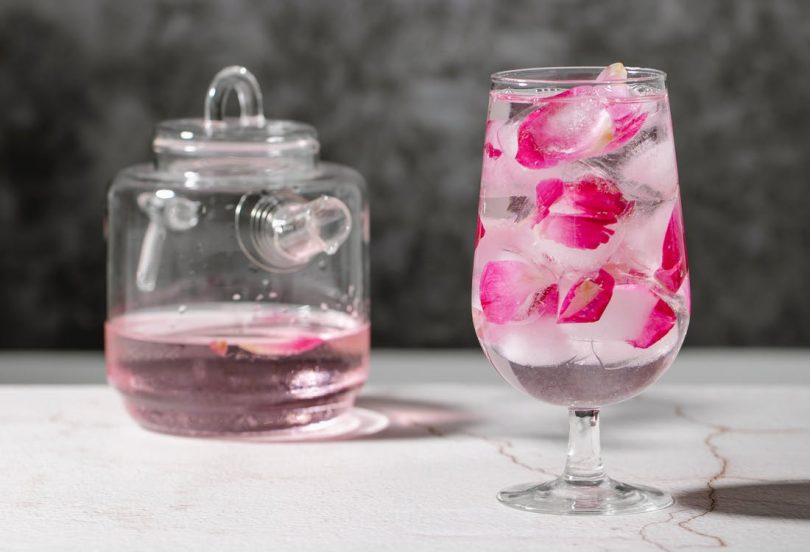Rose water is suitable for all skin types, but it’s especially soothing for sensitive skin. Sensitive skin is a term that describes how skin often reacts as a result of genetics and conditions, including eczema, psoriasis, and rosacea.
Skin sensitivity can be caused by a variety of factors, including the ingredients in our skincare products and environmental stressors. Sun exposure, exfoliating acids, and other potent active ingredients are only a few examples. The redness and inflammation caused by these components are usually transient or disappear after the skin adjusts.
Standard product ingredients irritate sensitive skin a lot of the time. When it comes to avoiding redness and inflammation, staying away from dyes, sulfates, and parabens becomes crucial. Rose water is an ingredient you should consider in your daily skincare routine.
Rose water is noted for its gentleness, making it ideal for delicate skin that may respond to other ingredients. It’s also calming and nourishing, with a variety of benefits for delicate skin.
What Is Rose Water?

Recently, several reports indicated that rose water could be helpful in reducing inflammation and redness on the skin. Rose water is produced by steam distillation of rose petals, which results in fragrant water. Antioxidants, anthocyanins, polyphenols, and flavonoids are among the substances contained in the resulting rose water.
Because of its potent and appealing scent, rose water is often used as a less intrusive fragrance in cosmetics. Rose water can act as an antioxidant, have antibacterial properties, and soothe the skin. Here are a few of the significant benefits of rose water.
1. Contains Antioxidants
Antioxidant compounds are found in rose water. The extracts of this rose, as well as the essential oil obtained from it, have antioxidant effects. Antioxidants protect the skin from oxidative stress and free radicals, which can damage the body’s cells. To preserve youthful skin, this can help reduce oxidative stress and reduce signs of ageing.
2. Antibacterial properties
One of the many advantages of rose water is that it helps to hold bacteria at bay. Eczema and psoriasis are common skin disorders that have a weakened skin barrier. Bacteria may be able to penetrate the skin more easily as a result of this. Not to mention that itching can lead to scratching, which can result in open wounds, a prime entryway for bacteria.
Bacteria on the skin’s surface are also involved in acne and rosacea. Rose water can help shield the skin from infections while still fighting bacteria that are already there.

3. Anti-inflammatory Effects
If you have a flare-up of redness on your face, rose water may help reduce its appearance—as well as any irritation it can cause. It’s an excellent way to soothe and cool your skin.
Rose water’s anti-inflammatory properties are perhaps its greatest strength. This natural ingredient reduces inflammation and soothes redness, making it ideal for all flaring or irritating skin conditions. Using rose water accomplishes this in part by preventing stressors that cause free radical damage.
Final Thoughts
Making use of rose water has a plethora of skin advantages;it has been used for thousands of years to keep people looking young and feeling refreshed. You can now choose to visit your local Argan oil shop or try rose water from a local supplier. Since roses are all-natural, it’s the epitome of green skincare.








